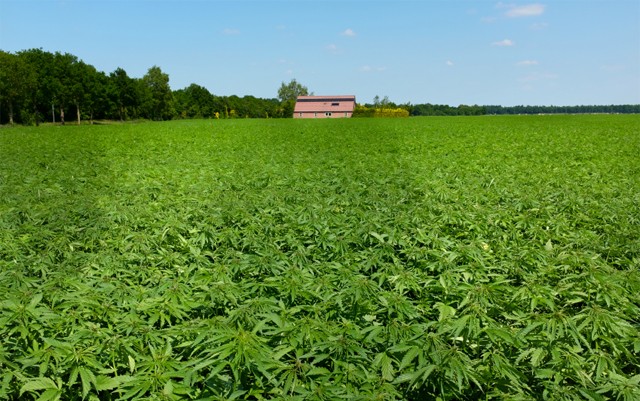It is estimated that more than 25,000 products are made from industrial hemp. Hemp is an agricultural product that replaces the need for a hydrocarbon with a natural carbohydrate. Basically, petroleum could be replaced with hemp. This may be an unbelievable statement for many US citizens to comprehend, but it is true. Sometimes the most obvious solutions are right under our noses.
The largest hemp producing countries include:
- China
- Germany
- Hungary
- Poland
- Sweden
- France
- Philippines
- Belgium
- Switzerland
- The Netherlands
- Austria
- Chile
There has been very little research done on the benefits of growing hemp on a global scale. This, in part, comes from the prohibition of its cultivation by the United Nations in 1961. Although the ban was lifted in the 1990s, few countries want to chance the restrictions again. After all, the United States still has strict limitations on growing hemp.
The countries listed above produce hemp mainly for the production of fabric, paper, building materials, beauty aids and food products. The United States imported $36.9 million in hemp for manufacturing in 2013, a six-fold increase from 2005. As more people are turning away from additives that include petroleum-based ingredients, hemp oil and hemp fiber are the perfect substitutes.
On a larger scale, the possibility of replacing crude oil with hemp is a subject that few in the international world want to touch. Although this would alleviate a lot of problems with sustainable energy, the political aspects are too complex and expensive to chance. To date, Sweden is the only country that has been brave enough to test the waters. They offer hemp briquettes for fueling. Made up of hemp shivs, there are less sulfur compounds emitted than the burning of oil fuel or coal.
One report written by the US Congressional Research Service downplays the potential market for hemp growers in the United States, citing USDA studies conducted. Also, researchers of The University of Kentucky made this prediction, “short run employment opportunities evolving from a new Kentucky hemp industry appear limited because of continued uncertainty in the industry.” All reports and studies share the same conclusion, that further analysis and production research is needed. Basically, there has been no concrete testing done to determine a reliable conclusion.
Pollution, global warming, forest sustainability and GMOs are some of the hot topics that the American government is focused on today. These concerns have flowed over into the international community, as well. What if we could significantly decrease all of these problems in one wide swoop? Until the US and the UN are willing to investigate the benefits of hemp in shortening the carbon cycle, conserving our forests, increasing sustainable agriculture and reducing pollution, we will continue to follow the road of hydrocarbon production.
SOURCES:
http://www.agf.gov.bc.ca/speccrop/publications/documents/hempinfo.pdf
https://www.fas.org/sgp/crs/misc/RL32725.pdf
http://www.naihc.org/KerrIHbenefits.pdf






